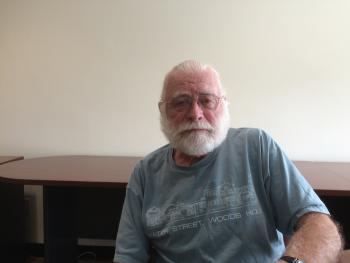Michael Corbett

Voices from the Science Centers
Voices from the Science Centers is an oral history initiative dedicated to documenting the institutional knowledge of fisheries scientists and administrators in the labs of NOAA’s Fisheries Science Centers.
Mike Corbett was born in 1940 in Quincy, Massachusetts, and studied engineering at Northeastern University in Boston. He worked as a draftsman as a Northeastern co-op student for Murray and Tregurtha in Quincy, and after graduation worked in industry at General Electric, before moving to Gloucester and working as an ocean engineer for the U.S. Bureau of Commercial Fisheries. He spent 29 years working in Exploratory Fisheries before moving to the private sector again.
Interview contains discussions of: exploratory fisheries, Helgoland Project, Stellwagen Bank, Delaware I, Delaware II, Albatross, channel fever, offshore lobster fishery, creation of wire lobster pots, shrimp fishery.
Mike Corbett gives a detailed account of his early years with the U.S. Bureau of Commercial Fisheries and his work with the offshore lobster fishery and the Helgoland Project.
Please Note: The oral histories in this collection are protected by copyright and have been created for educational, research and personal use as described by the Fair Use Doctrine in the U.S. Copyright law. Please reach out Voices@noaa.gov to let us know how these interviews are being used in your research, project, exhibit, etc. The Voices staff can help provide other useful resources related to your inquiry.
The NOAA mission is to understand and predict changes in climate, weather, oceans, and coasts, to share that knowledge and information with others, and to conserve and manage coastal and marine ecosystems and resources. The Voices Oral History Archives offers public access to a wide range of accounts, including historical materials that are products of their particular times, and may contain offensive language or negative stereotypes.
Voices Oral History Archives does not verify the accuracy of materials submitted to us. The opinions expressed in the interviews are those of the interviewee only. The interviews here have been made available to the public only after the interviewer has confirmed that they have obtained consent.
